Dangers of flying rings to seals are highlighted
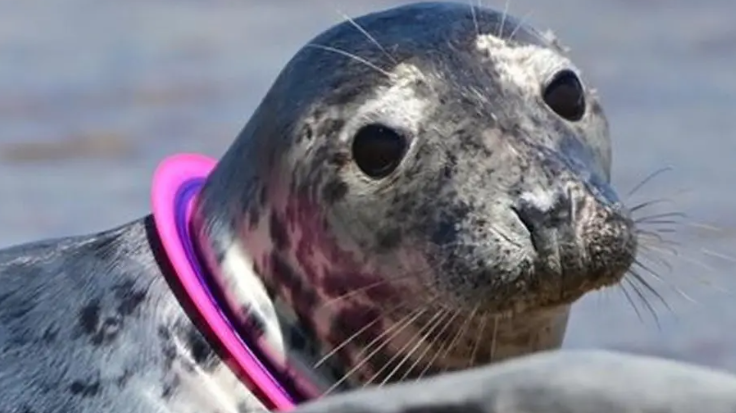
Seals can suffer a "very long and painful death through infection and starvation" as they grow and the plastic ring cuts into their necks
- Published
A sign highlighting the danger that flying plastic rings pose to seals has been put up at a Norfolk beach for the first time.
Sea Palling beach is believed to have one of the biggest populations of seals in England.
Four-year-old seal Bongo recently spent four months at RSPCA East Winch after being entangled in a green plastic ring, but was released on Tuesday.
Jenny Hobson from Friends of Horsey Seals and the Seals Alliance, said: "Flying rings are potentially mortally dangerous. They can kill and they will kill seals if they get stuck in them."
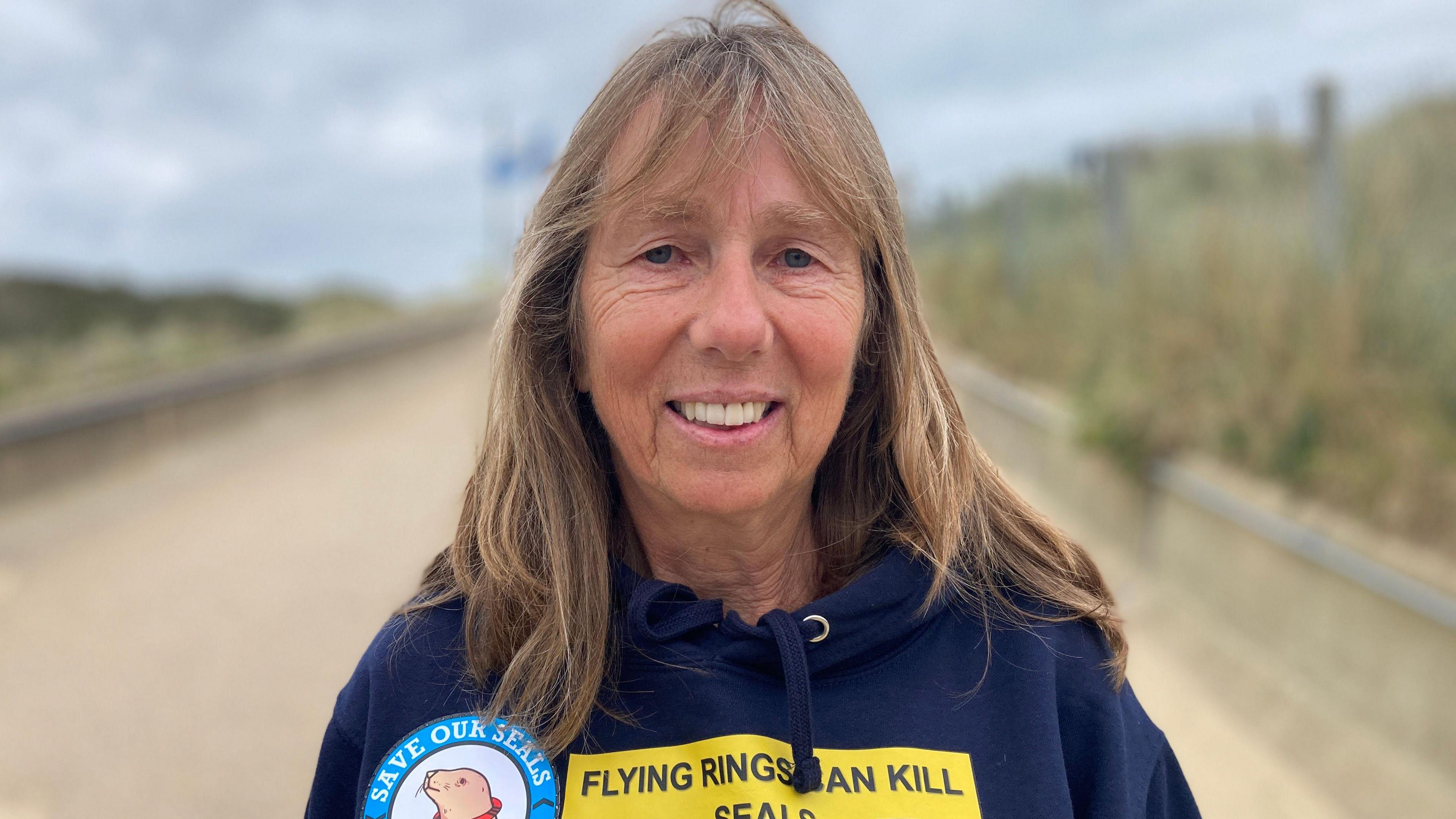
Jenny Hobson says flying rings are a particular issue for young inquisitive seals
Ms Hobson, who also volunteers at RSCPA East Winch, says she has seen many seals with "horrendous injuries" caused by flying rings.
Younger inquisitive seals were most likely to find them, she explained.
"They play with them sometimes putting their head through the hole in the middle and the seal grows and the ring cuts deeper and deeper into the neck causing the most horrendous open wounds and sadly the seal will suffer a very long and painful death through infection and starvation."
The seal charity launched a flying rings campaign in 2019, urging people to not discard the frisbee-style hoops.
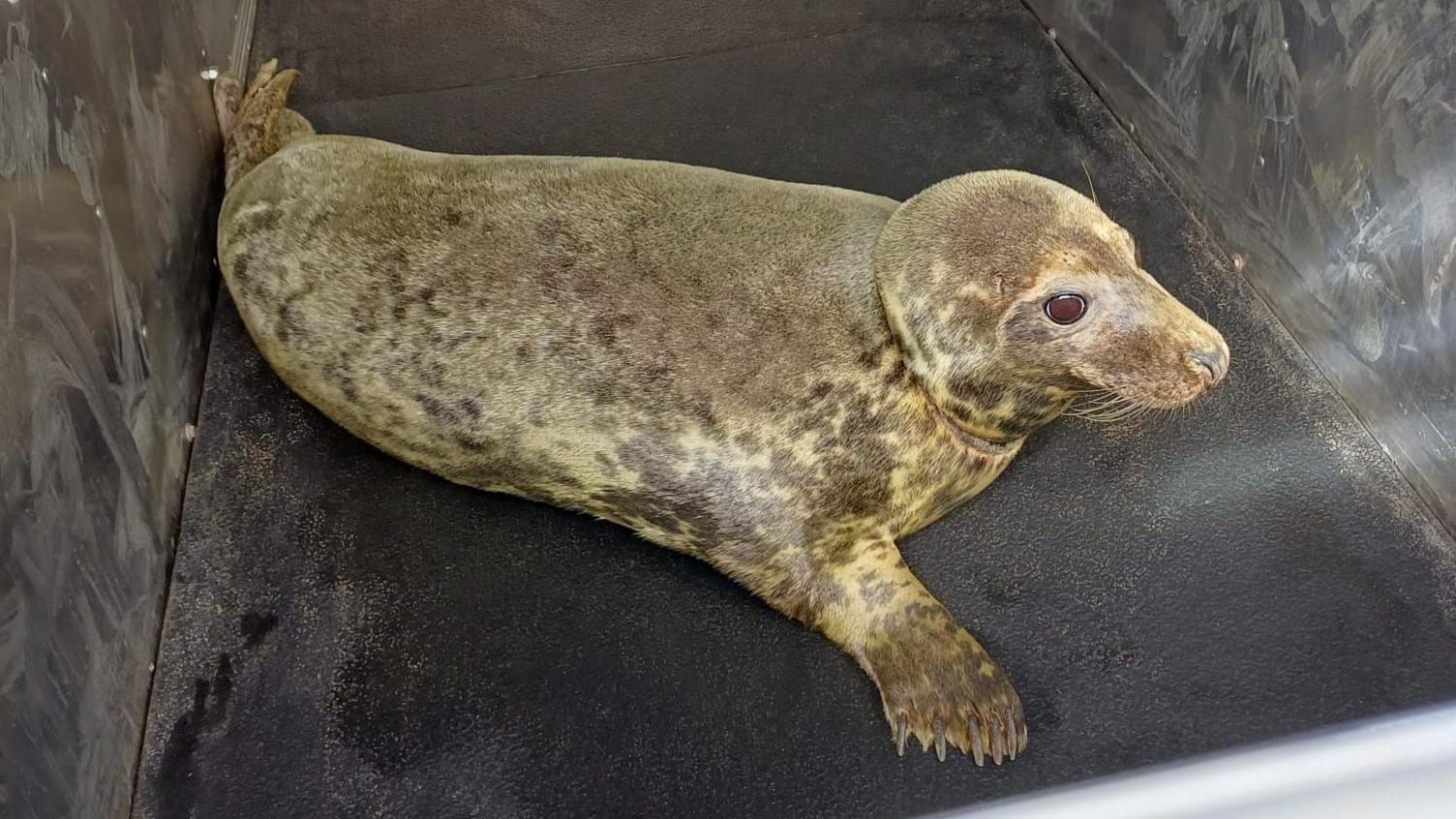
Bongo was rescued on 17 May, but was released on Tuesday
Sea Palling and Waxham Parish Council is working with the local charities on the installation of signs.
Council chairwoman Val Bird said: "It's really important we get the message across for how dangerous these flying rings are."
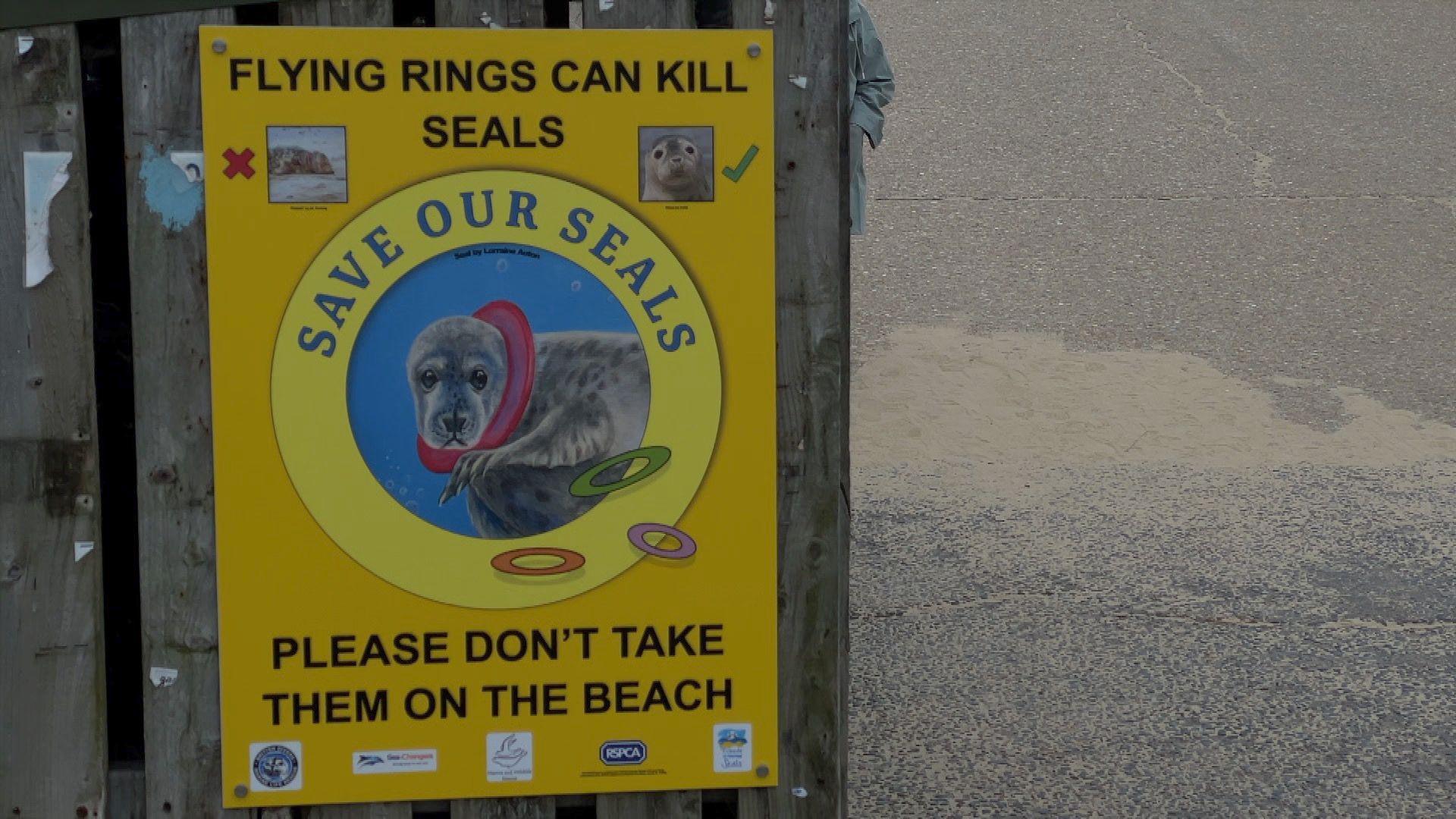
Sea Palling and Waxham Parish Council says people need to be aware of the dangers the flying rings pose
Get in touch
Do you have a story suggestion for Norfolk?
Follow Norfolk news on BBC Sounds, Facebook, external, Instagram, external and X, external.
Related topics
- Published23 June 2023
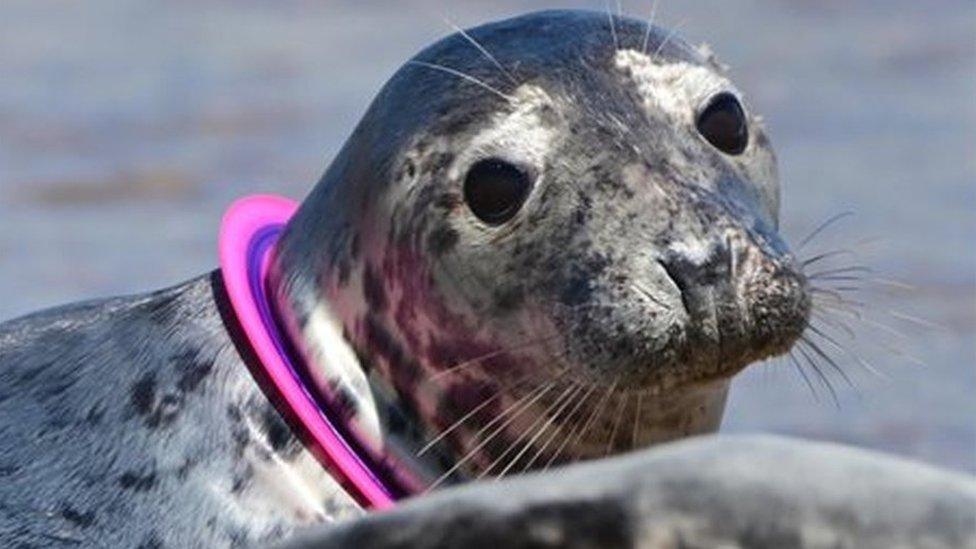
- Published7 December 2021
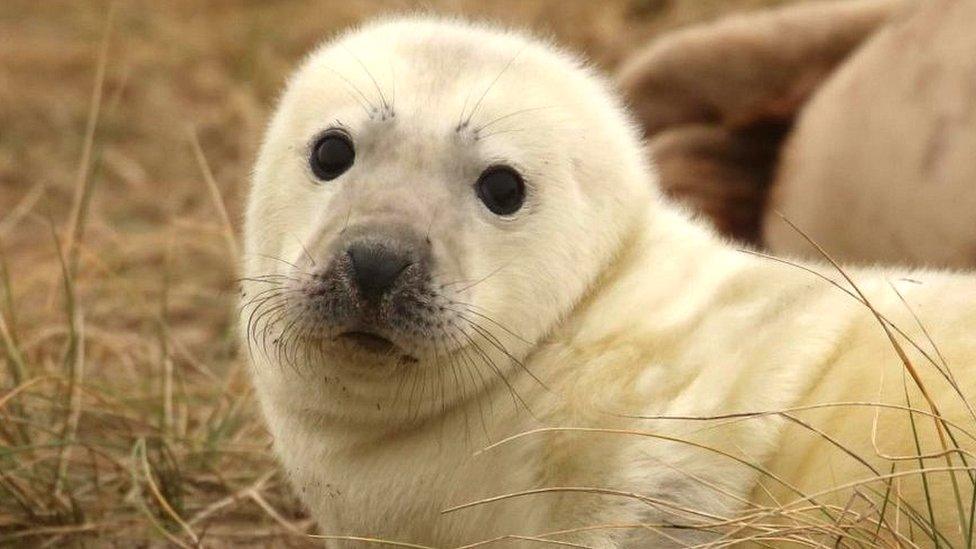
- Published2 September 2021
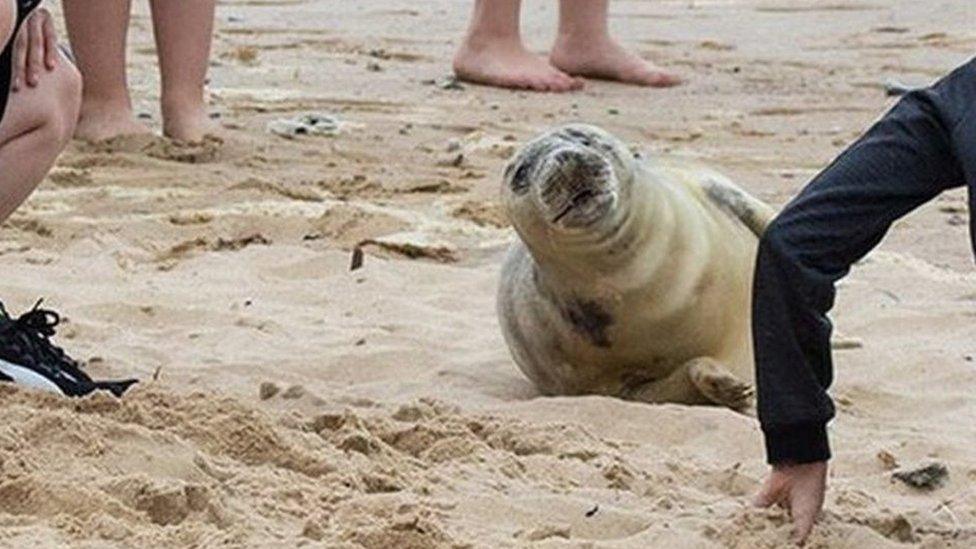
- Published15 June 2021
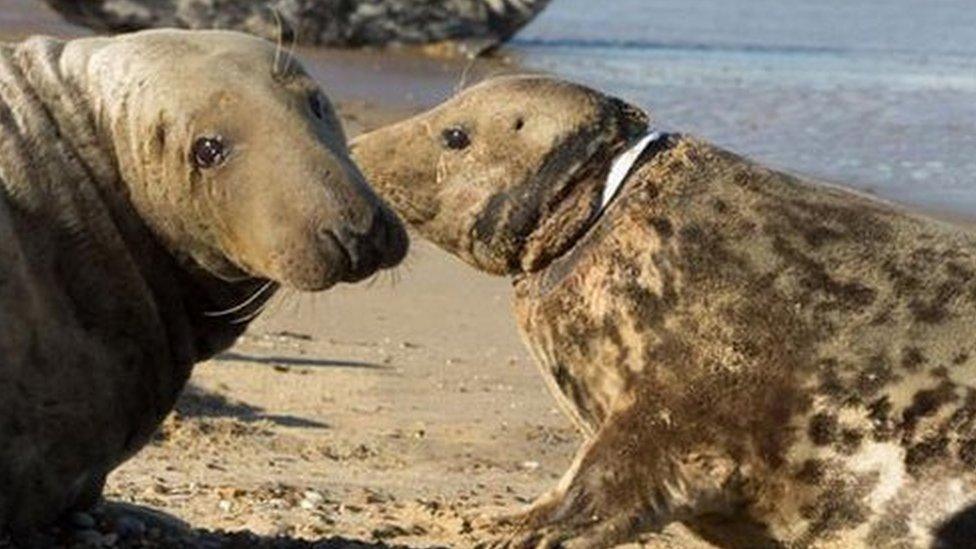
- Published28 July 2022
- Published16 November 2017